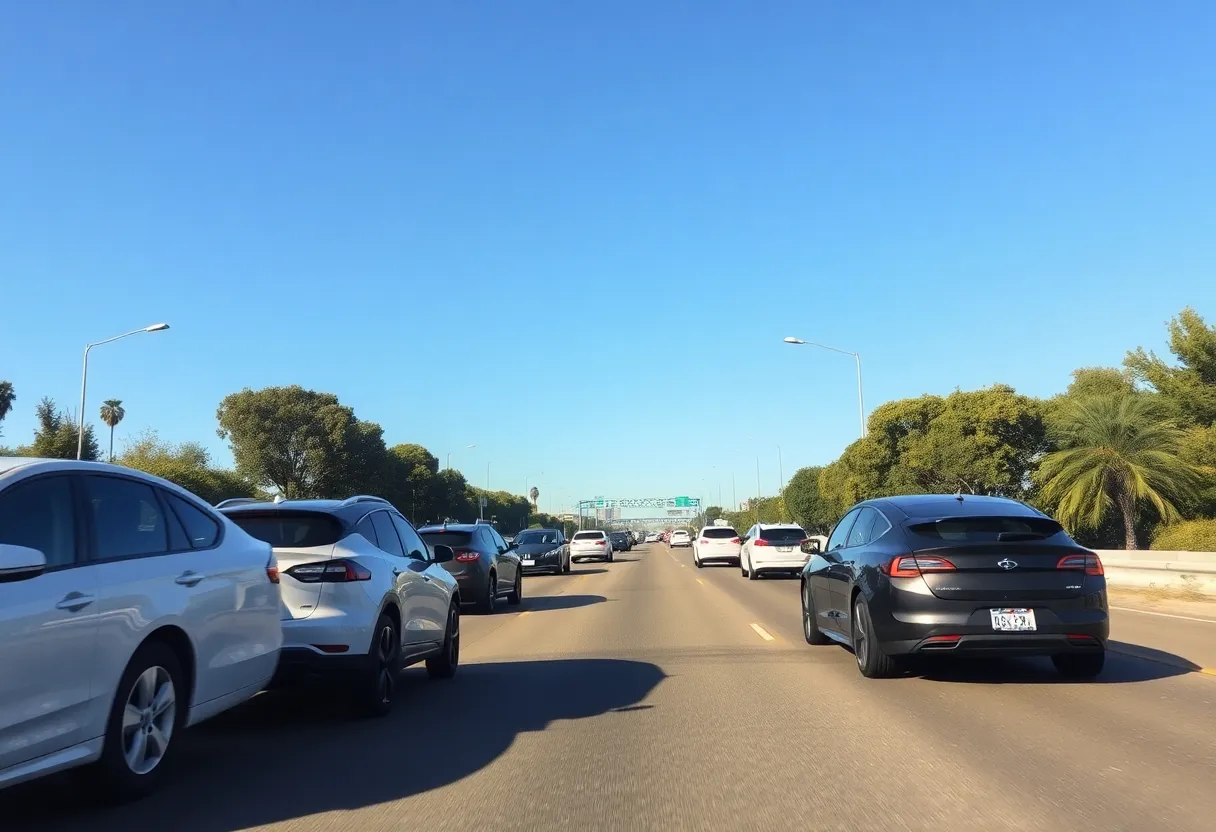News Summary
The House of Representatives voted 246-164 to block California’s plan to ban the sale of new gas-powered vehicles by 2035. This resolution seeks to withdraw a waiver from the EPA that allowed California to implement this ban. With backing from both Republicans and some Democrats, lawmakers argue that such a regulatory agenda shouldn’t dictate national transportation choices. The decision has sparked criticism from California officials, who argue it undermines the state’s climate leadership and could lead to legal challenges.
California
On May 1, 2025, the House of Representatives voted 246-164 to block California’s plans to ban the sale of new gas-powered vehicles by 2035. The resolution, known as House Joint Resolution 88, seeks to revoke a waiver granted to California by the Environmental Protection Agency (EPA) during the Biden administration, which allowed the state to implement the ban.
This significant legislative decision garnered support from 211 Republicans and 35 Democrats. Lawmakers articulated their concerns that a single state’s regulatory agenda should not impose restrictions on the transportation choices of Americans nationwide.
Details of the Resolution
The House vote also included two additional measures aimed at withdrawing waivers pertaining to California’s initiatives: one targeting the sales of zero-emissions trucks, which passed with a vote of 231-191, and another addressing nitrogen oxide emission standards for engines, which passed 225-196. These actions reflect a broader push among Republican lawmakers to limit the scope of California’s ambitious environmental regulations.
Background on California’s Ban
In 2020, California Governor Gavin Newsom signed an executive order to cease the sale of new gasoline-powered vehicles by 2035. The order instructs the California Air Resources Board to formulate regulations necessary for enforcing the ban. It is important to note that this executive order does not prevent the ownership or sales of used gasoline-powered vehicles.
Supporters of the ban, including environmental and public health advocates, argue that it could lead to substantial reductions in emissions and air pollution, benefiting both the climate and public health. The initiative has also gained traction among eleven other states that have indicated plans to adopt similar restrictions, representing approximately 40% of the U.S. auto market.
Responses and Implications
In response to the House’s decision, Governor Newsom’s office criticized the vote, claiming it misuses the Congressional Review Act (CRA) and contradicts findings from both the Government Accountability Office and the Senate Parliamentarian regarding the CRA’s applicability. Newsom also emphasized that California’s Clean Air Act authority derives from historical Republican leadership figures.
Senator Alex Padilla (D-California) expressed that the House’s actions undermine California’s established climate leadership and economic strength. Opponents of the gas vehicle ban, including some Republicans and business groups, contend that it restricts consumer choices regarding vehicle purchases.
Legislative Context
Representative John Joyce (R-Pennsylvania), who introduced the resolution to revoke the waiver, invoked Congress’s authority over the interstate automotive market. However, the Senate Parliamentarian has ruled that the waiver is not a regulation subject to the CRA, a determination supported by the Government Accountability Office. This legal context raises questions about the validity of the House’s actions and what it could mean for similar legislative measures in the future.
Further complicating the matter, Representative Paul Tonko (D-New York) warned that this resolution might set a concerning precedent for future legislative initiatives. Meanwhile, Senator Shelley Moore Capito (R-West Virginia) sponsored a similar resolution in the Senate but has not yet committed to a vote, despite the parliamentarian’s ruling.
Potential Legal Challenges
Speculation about legal challenges to the resolution is also surfacing, as a spokesperson for California’s Attorney General indicated that the state may contest the actions taken by the House of Representatives. As California continues to navigate its ambitious environmental policies, the interplay between state and federal regulatory powers remains a critical issue for lawmakers and citizens alike.
Overall, the House’s decision to block California’s gas-powered vehicle ban has significant implications for both environmental policy and consumer choice, underscoring the ongoing debate over states’ rights versus federal oversight in the realm of climate action and automotive regulations.
Deeper Dive: News & Info About This Topic
- The Washington Post: California Cars Waiver House Vote
- Wikipedia: California Governor’s Office of Environmental Protection
- Fox News: Democrats Block Newsom’s Gas Car Ban
- Google Search: California gas car ban
- The New York Times: California Gas Cars Waiver House Vote
- Encyclopedia Britannica: California
- The Hill: House Vote on California EV Mandate
- Google News: California automotive policy

Author: STAFF HERE CORONADO
The Coronado Staff Writer represents the experienced team at HERECoronado.com, your go-to source for actionable local news and information in Coronado, San Diego County, and beyond. Specializing in "news you can use," we cover essential topics like product reviews for personal and business needs, local business directories, politics, real estate trends, neighborhood insights, and state news affecting the area—with deep expertise drawn from years of dedicated reporting and strong community input, including local press releases and business updates. We deliver top reporting on high-value events such as the Coronado Island Film Festival, productions at Lamb’s Players Theatre, community workshops at John D. Spreckels Center, and iconic celebrations at Hotel del Coronado. Our coverage extends to key organizations like the Coronado Chamber of Commerce and Visit Coronado, plus leading businesses in hospitality, dining, and tourism that drive the local economy. As part of the broader HERE network, including HERESanDiego.com, HEREHuntingtonBeach.com, HERELongBeach.com, and HERELosAngeles.com, we provide comprehensive, credible insights into Southern California's dynamic landscape.


